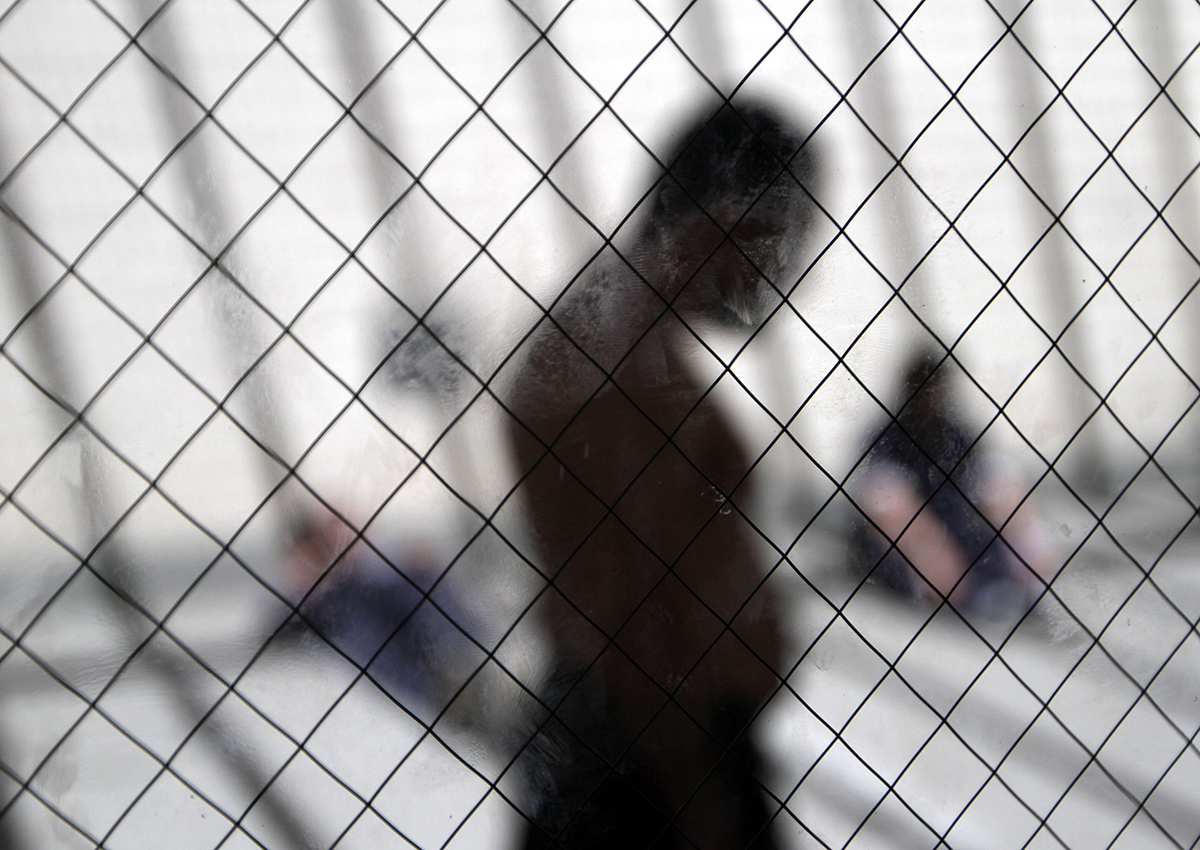The Canada Border Services Agency (CBSA) is moving ahead with a new system for monitoring people remotely using a phone system that can recognize individual voices and pinpoint their location using GPS, government documents reveal.

The agency put out a call for tender for the equipment on Wednesday, taking one of the final steps in a broader effort to reduce the number of permanent residents and foreign nationals being detained by the CBSA in any given year.
Canada’s Unwanted: Non-citizens paid to leave, jailed without charge, die in secret
The full array of new “alternatives to detention,” which will also include community monitoring done by partners like the Salvation Army and the John Howard Society of Canada, will be rolled out by April 2018, the CBSA has confirmed.
In the 2015-16 fiscal year, nearly 6,600 people were held in immigration detention, including 200 minors.
READ MORE: Feds to ‘dramatically reduce’ jailing of immigration detainees
The documents released this week explain that the CBSA is “designing and building a voice reporting system (VRS) that will allow clients to report to the CBSA by cellphone or landline using voice biometrics to authenticate
the client’s identity.”

Get breaking National news
The CBSA has argued that the new tool will help officials to keep track of people (or as the CBSA calls them, “clients”) even if they are not being held in a government facility. That will allow people who don’t pose a safety or security risk to move about freely while also ensuring they don’t disappear off the government’s radar.
“For clients who report by cellphone, the CBSA system needs to record their geographic location,” the tender documents note.
That will mean enabling GPS tracking of those phones.
READ MORE: Cold, ill-fed, terrified: Ex-detainee recalls Lindsay jail ordeal
But the system won’t be perfect, the agency acknowledges. In fact, the voice recognition technology – which will be based on a “voice print” provided in advance of the person’s release – only needs an accuracy rating of 60 per cent or better.
The system must, however, include “anti-spoofing technologies to detect pre-recorded audio, unnatural audio source, concatenation of audio file and synthetic voice.”
It’s unclear if the agency might also consider wearable tracking devices, like ankle bracelets, in the future.
Fixing the system
The changes come in the wake of heavy criticism about the way the government currently detains foreign nationals and permanent residents. A Global News investigative series in 2014 revealed that detainees can end up being held for months or even years, sometimes in provincial jails alongside convicted criminals.
Public Safety Minister Ralph Goodale has called that “entirely inappropriate.”
Border officials can detain people and hold them for a number of reasons. For instance, they can be held if additional examinations are required, or if there’s reason to believe that they pose a security threat or danger to the public.
READ MORE: Feds pay over $22,000 a day to jail non-dangerous immigration detainees in Ontario
Permanent residents and foreign nationals can also be detained for violating human or international rights, for engaging in criminal activity, for failing to prove their identity, or if the CBSA believes there’s a good chance they won’t show up for a future immigration proceeding or deportation.
In June 2016, Goodale announced that Ottawa would try to put an end to the practice of holding people in provincial jails, instead relying on alternatives to detention and making better use of three purpose-built immigration holding centres that already exist.
Many of the people being detained have no criminal background and pose no security threat, the government noted, and have instead been held for administrative reasons. Less than a quarter of the federal immigration detainees held in maximum-security Ontario jails pose a danger to public safety, Global News reported earlier this year.
“The CBSA is currently engaged in the program execution phase with the intention to implement the expanded national Alternatives to Detentions (ATD) Framework in April 2018,” said CBSA spokesperson Jayden Robertson in an email.
Community partners
The community-monitoring aspect of the new framework will involve several local partners, Robertson added. These partners will carry out case-management work, acting as guardians for individuals who cannot be released on a cash bond to their families, and helping to ensure people comply with the terms of their release and show up prepared to immigration proceedings.
READ MORE: Immigration detention ‘woefully unsuited for children,’ report charges
“The CBSA is currently in discussions with selected Community Case Management and Supervision service providers such as the Salvation Army, the John Howard Society of Canada and the Toronto Bail Program,” Robertson said.


Comments